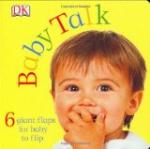|
This section contains 289 words (approx. 1 page at 300 words per page) |
Pattern of speaking used by a caretaker when talking to an infant.
Motherese, or parentese, is the name given to the pattern of speech used by caretakers (mothers and other adults) when talking to infants. It is characterized by higher pitch, slower tempo, and wider fluctuations in intonation than that used in normal conversation with older children or adults. Motherese is employed by caregivers worldwide in interacting with infants. Although most researchers believe that the motherese speech pattern is not essential for the infant's language acquisition, it does attract the infant's attention and get him or her to focus on spoken language. In addition, motherese may draw attention to certain language features (patterns of emphasis, relationship of words to affect) that help infants learn. A feature of motherese—repeating what the infant or child attempts to say—is effective in encouraging the use of language in communication.
In the mid-1980s, studies at Stanford University demonstrated that infants preferred listening to motherese, with its pattern of exaggerated tone and slower tempo, over adult conversation. Other studies at the University of Washington found that caregivers saturate their motherese speech pattern with vowels. The researchers concluded that this feature of motherese helps to form the infant's perceptual categories for his or her native language.
For Further Study
Books
Kuhl, Patricia K. "Perceptions of Speech and Sound in Early Infancy." In Handbook of Infant Perception: Volume 2. New York: Academic Press, 1987.
Welker, J. F., and J. E. Pegg. "Infant Speech Perception and Phonological Acquisition." In Phonological Development: Models, Research, Implications. Timonium, MD: York, 1992.
Periodicals
Fernald, Anne. "Four-month-old Infants Prefer to Listen to Motherese." Infant Behavior and Development 8, 1985, pp. 303-306.
"How to Talk 'Parentese' to Your Child." Newsweek, Spring/Summer 1997, p. 21.
|
This section contains 289 words (approx. 1 page at 300 words per page) |


